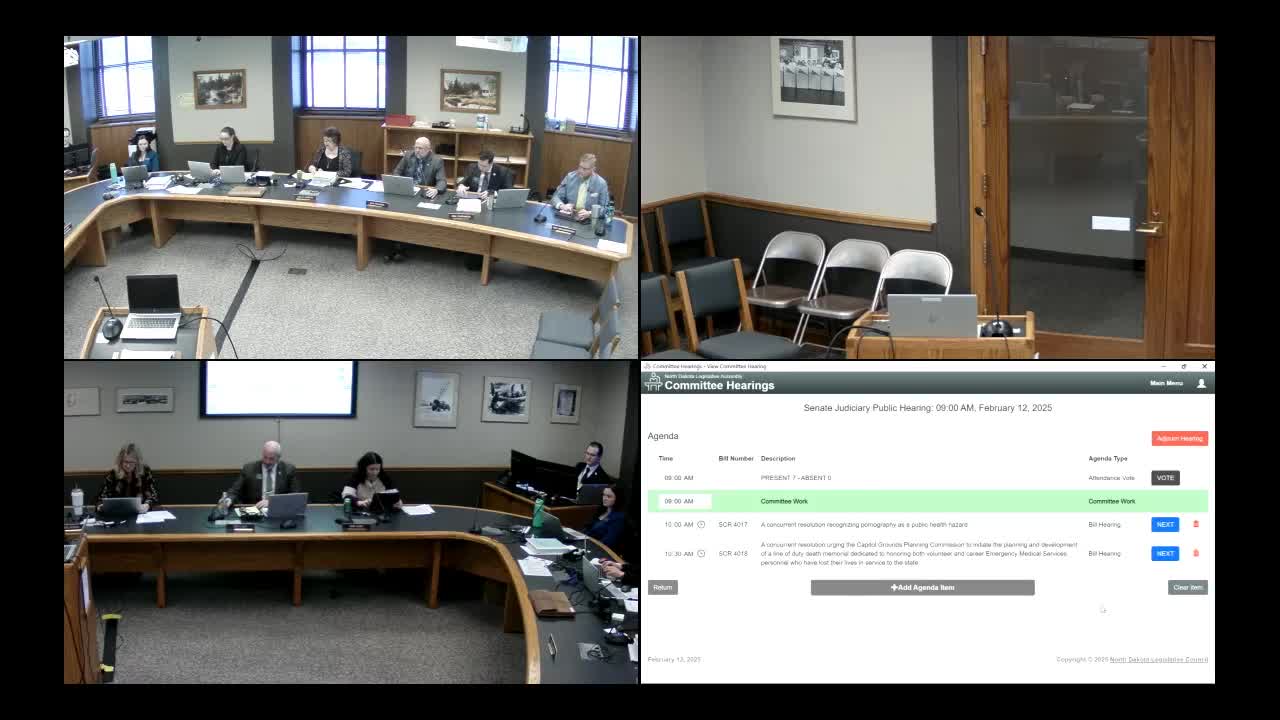Article not found
This article is no longer available. But don't worry—we've gathered other articles that discuss the same topic.
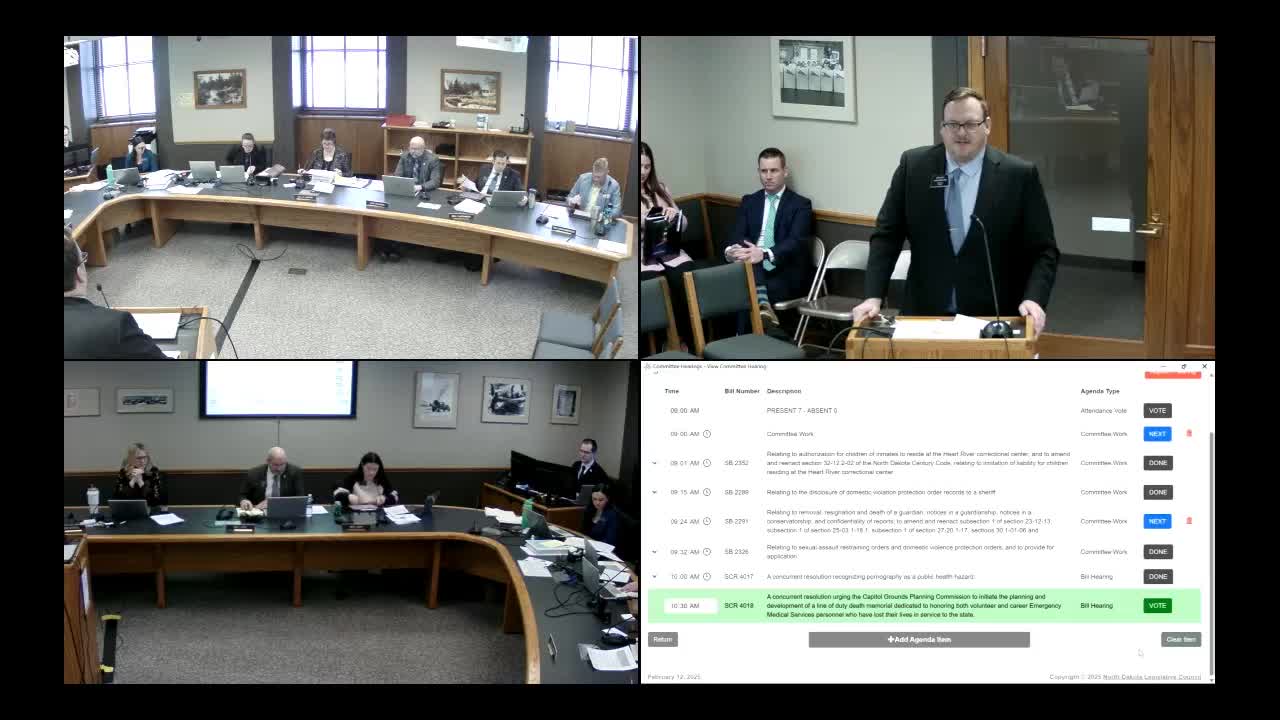
Judiciary committee backs resolution urging Capitol planning commission to develop EMS memorial; amendments clarify agency names
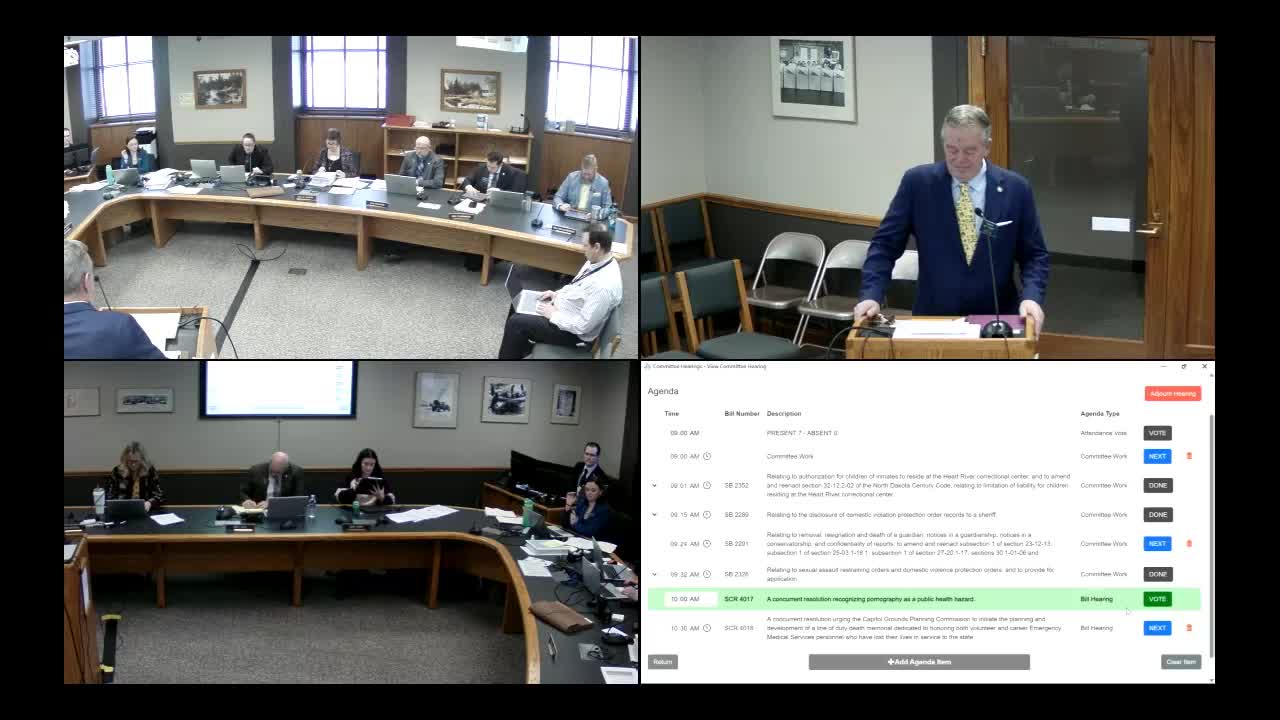
Committee hears wide testimony declaring pornography a public health hazard; adopts concurrent resolution to that effect
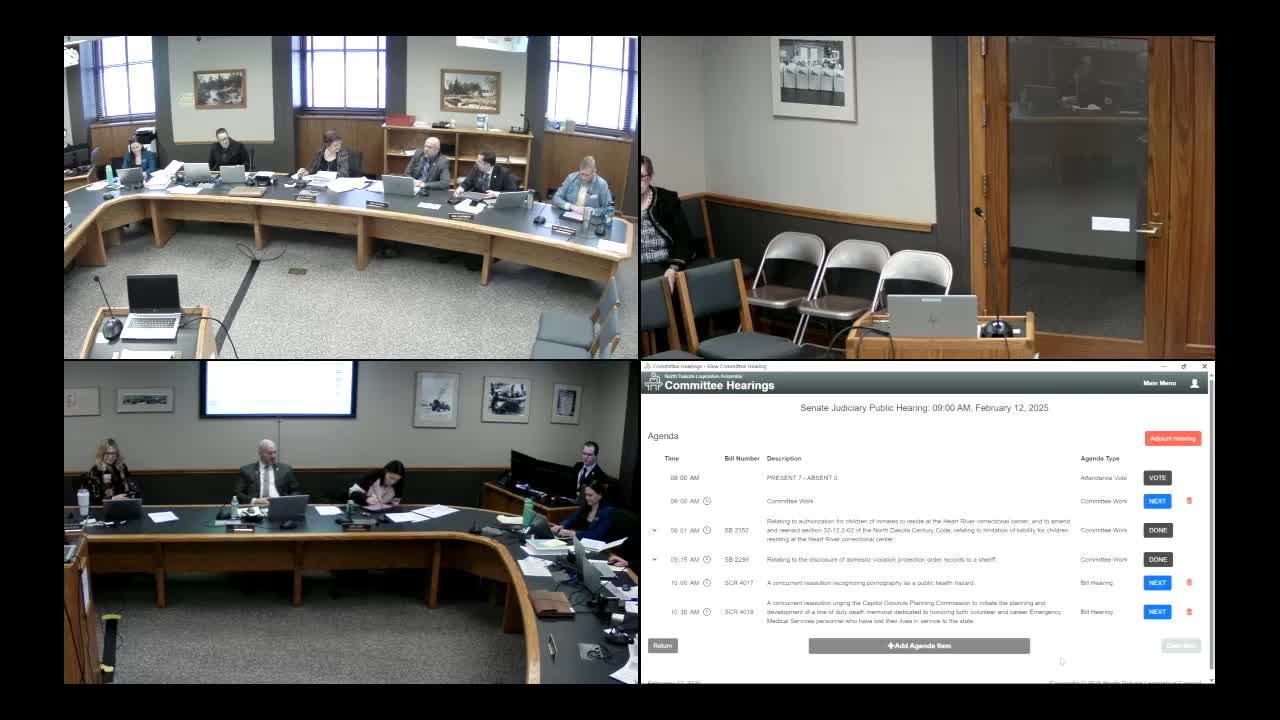
Committee advances guardianship bill after restoring 'limited guardians' language; liability tweak deferred to courts
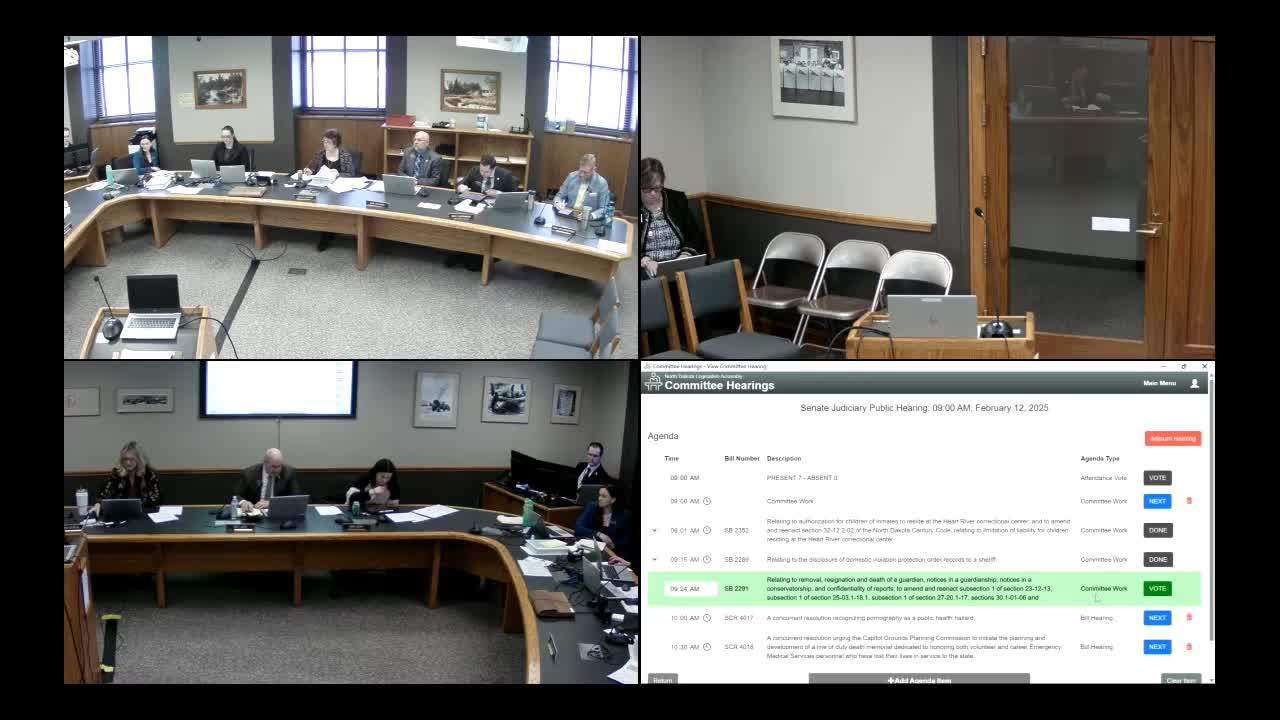
Panel rejects proposed wording change to align state restraining order language with federal law; committee votes 'do not pass' on assault‑restraining bill
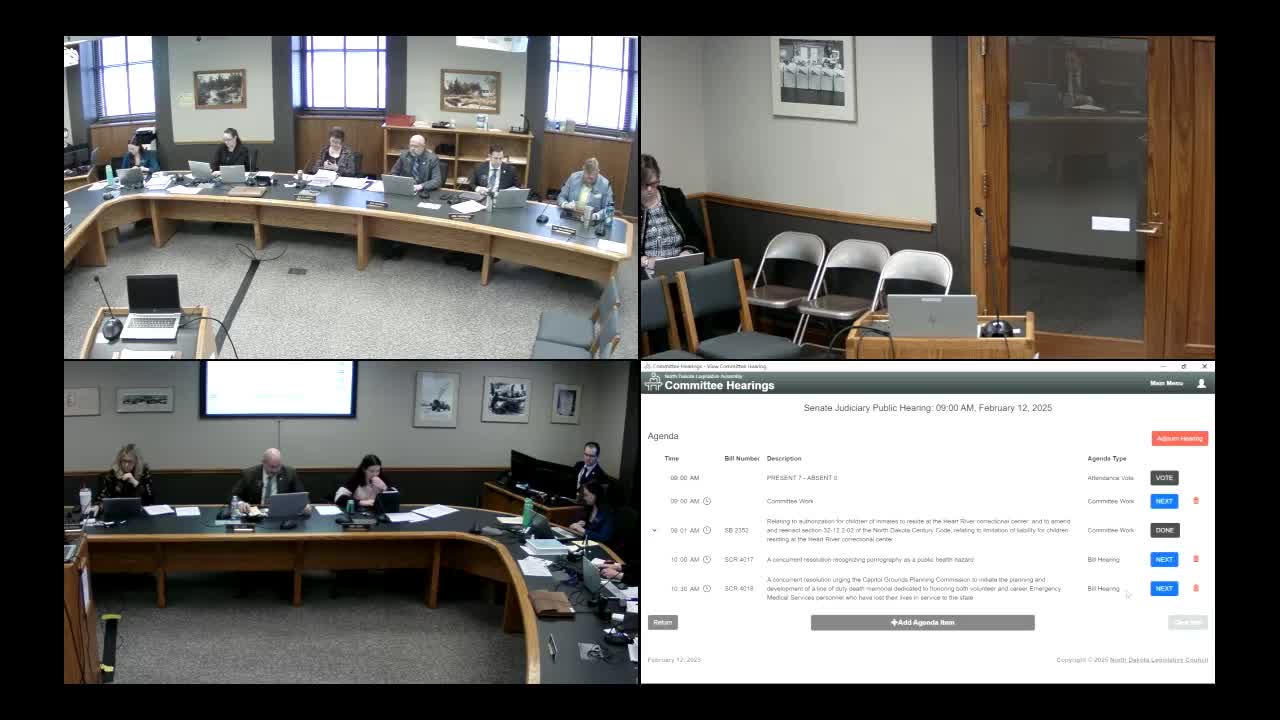
Judiciary committee adopts amendment to give law enforcement broader access to protection order records; bill advanced
